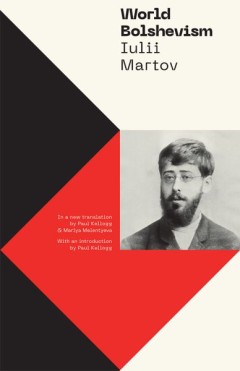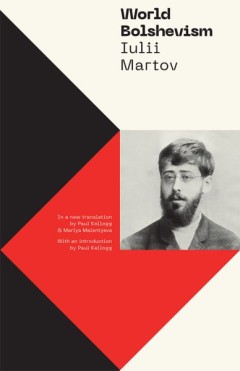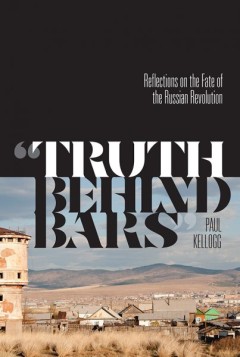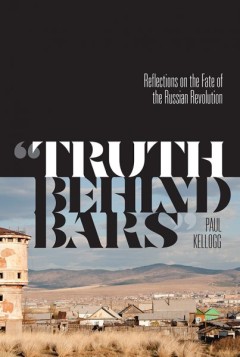Filter by

World Bolshevism
Following Martov’s untimely death in 1923, a Russian-language edition of one of his books, World Bolshevism, was published. But it was only in 2000, after decades of extreme censorship, that parts of the book were legally published in Russia. In English, this work has reached the public in pieces, often as a part of pamphlets with limited circulation. This edition, which includes an introduct…
- Edition
- -
- ISBN/ISSN
- 9781771992732.01
- Collation
- -
- Series Title
- -
- Call Number
- 194 pages

Truth Behind Bars” Reflections on the Fate of the Russian Revolution
Paul Kellogg uses the story of Vorkuta as a frame with which to re-assess the Russian Revolution. In particular, he turns to the contributions of Iulii Martov, a contemporary of Lenin, and his analysis of the central role played in the revolution by a temporary class of peasants-in-uniform. Kellogg explores the persistence and creativity of workers’ resistance in even the darkest hours of aut…
- Edition
- -
- ISBN/ISSN
- 9781771992459.01
- Collation
- -
- Series Title
- -
- Call Number
- 6x9, 440 pages

World Bolshevism
Following Martov’s untimely death in 1923, a Russian-language edition of one of his books, World Bolshevism, was published. But it was only in 2000, after decades of extreme censorship, that parts of the book were legally published in Russia. In English, this work has reached the public in pieces, often as a part of pamphlets with limited circulation. This edition, which includes an introduct…
- Edition
- -
- ISBN/ISSN
- 9781771992732.01
- Collation
- -
- Series Title
- -
- Call Number
- 194 pages

Truth Behind Bars” Reflections on the Fate of the Russian Revolution
Paul Kellogg uses the story of Vorkuta as a frame with which to re-assess the Russian Revolution. In particular, he turns to the contributions of Iulii Martov, a contemporary of Lenin, and his analysis of the central role played in the revolution by a temporary class of peasants-in-uniform. Kellogg explores the persistence and creativity of workers’ resistance in even the darkest hours of aut…
- Edition
- -
- ISBN/ISSN
- 9781771992459.01
- Collation
- -
- Series Title
- -
- Call Number
- 6x9, 440 pages

World Bolshevism
Following Martov’s untimely death in 1923, a Russian-language edition of one of his books, World Bolshevism, was published. But it was only in 2000, after decades of extreme censorship, that parts of the book were legally published in Russia. In English, this work has reached the public in pieces, often as a part of pamphlets with limited circulation. This edition, which includes an introduct…
- Edition
- -
- ISBN/ISSN
- 9781771992732.01
- Collation
- -
- Series Title
- -
- Call Number
- 194 pages

“Truth Behind Bars” Reflections on the Fate of the Russian Revolution
Paul Kellogg uses the story of Vorkuta as a frame with which to re-assess the Russian Revolution. In particular, he turns to the contributions of Iulii Martov, a contemporary of Lenin, and his analysis of the central role played in the revolution by a temporary class of peasants-in-uniform. Kellogg explores the persistence and creativity of workers’ resistance in even the darkest hours of aut…
- Edition
- -
- ISBN/ISSN
- 9781771992459.01
- Collation
- -
- Series Title
- -
- Call Number
- 6x9, 440 pages
 Computer Science, Information & General Works
Computer Science, Information & General Works  Philosophy & Psychology
Philosophy & Psychology  Religion
Religion  Social Sciences
Social Sciences  Language
Language  Pure Science
Pure Science  Applied Sciences
Applied Sciences  Art & Recreation
Art & Recreation  Literature
Literature  History & Geography
History & Geography